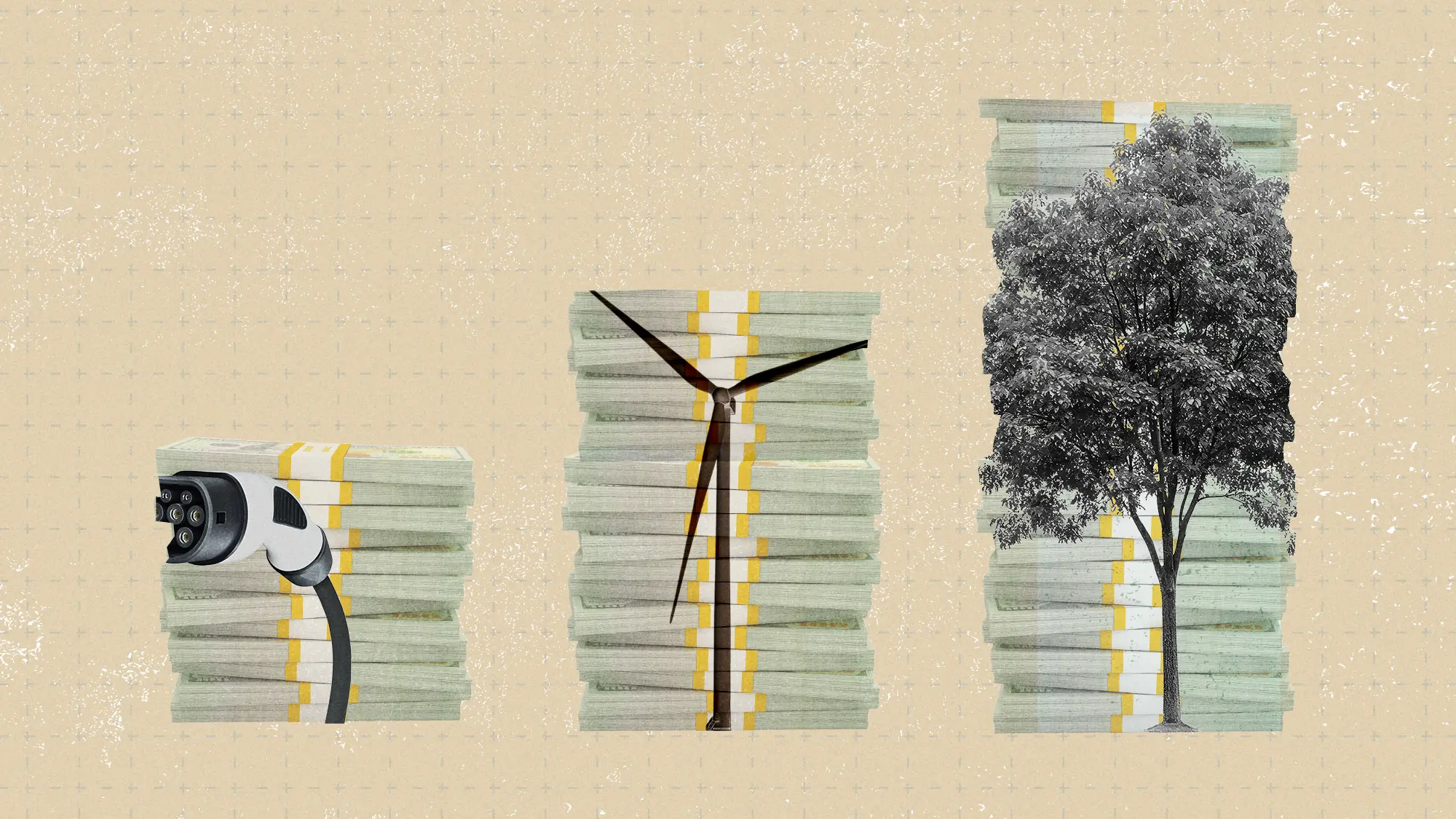Sovereign wealth funds are not your average investors. With more than $12.7 trillion in assets under management and mandates that stretch across decades, sometimes even centuries, these state-backed giants may be the institutional anchors needed to sustain ESG investing amid its current political backlash. While private asset managers are under pressure to retreat from environmental, social, and governance principles, SWFs can provide the capital and the insulation necessary to preserve the future of sustainable investing. They may indeed be the last reliable custodians of corporate and financial sustainability.
The timing is critical. ESG, once the North Star of progressive capital, has become politically radioactive. In the United States, ESG principles have been cast as ideological overreach by parts of the Republican party. In Europe, regulatory fatigue and greenwashing scandals have dimmed enthusiasm. Meanwhile, asset managers, some of whom had once loudly championed ESG, are now rowing away from it under political and legal pressure. This retreat leaves a void that SWFs are uniquely positioned to fill.
SWFs operate on fundamentally different principles than traditional investors. They answer to national priorities rather than shareholders or quarterly reports. This means they are not constrained by the same market anxieties that send other institutional players scrambling at every market spasm. Their mission is to stabilize national economies, preserve wealth across generations, and invest in structural transformation – and this aligns quite naturally with ESG’s long-term horizon. Cleaner energy, ethical supply chains, and accountable governance may not yield outsized returns tomorrow, but they anchor nations and economies in the decades to come.
Most sovereign wealth funds are underpinned by public mandates and financed through public means, most often oil revenues, but also foreign reserves and fiscal surpluses. This gives them a dual identity: they are capitalist players but state stewards. That split role is often criticized for lacking agility, but it also allows them to remain insulated from populist swings and partisan pushback. In this moment of ESG backlash, such insulation is more feature than bug.
Despite their natural alignment with sustainable principles, SWFs’ participation in responsible investment has, so far, been lacklustre relative to other institutional investors and private-sector counterparts. According to research by Bernardo Bortolotti and colleagues at the Sovereign Investment Lab at Bocconi University and the Transition Investment Lab at NYU Abu Dhabi, as of 2000, only 7% of global SWF deal value can be classified as aligned with the SDGs. The reasons are manifold: conservative mandates, weak public pressure, and, in some cases, the paradox of fossil-fuel wealth being asked to finance decarbonization.
Still, the foundational logic is compelling. SWFs’ missions to preserve national wealth, stabilize economies, and invest in future generations are inherently aligned with the goals of ESG investing. If the funds wish to fulfil their own stated purpose, ESG principles should not just be compatible with their strategies but central to them.
The foundational purpose of most sovereign wealth funds is to support the well-being of future generations. The management of financial wealth should be in harmony with its raison d’être. If that harmony is not found in sustainable investment, where else can it be?
ESG investing is not only possible but politically palatable for sovereign wealth funds.
Several leading sovereign wealth funds have shown that sustainable investing is not only possible but strategically sound. Norway’s Government Pension Fund Global (GPFG), the world’s largest SWF with assets of around $1.3 trillion, has become a reference point in responsible investing. Its reputation comes largely from how it screens out companies linked to human rights violations, environmental harm, or unethical behavior. The fund’s ethical guidelines, enforced by the Norwegian Parliament, have made it a global standard-setter, despite only 2.4 percent of its assets being in renewable energy and climate solutions.
In Asia, Singapore’s funds have also emerged as leaders. Temasek’s green strategy includes sizable stakes in electric vehicle infrastructure across Southeast Asia. GIC, while typically conservative, dramatically increased its investments in emerging markets in 2023, much of it directed at sustainable urbanization and real estate projects.
Middle Eastern sovereign wealth funds are also moving toward sustainability, despite their oil-based beginnings. Abu Dhabi’s Mubadala Investment Company was ahead of the trend in clean energy as early as 2006, when it established Masdar with a specific focus on renewable energy. In Saudi Arabia, the Public Investment Fund (PIF) has pledged tens of billions of dollars to renewable energy initiatives, an ironic but economic and politically strategic twist for a country undergoing rapid diversification under its Vision 2030 program.
These examples prove that ESG investing is not only possible but politically palatable for sovereign wealth funds, even in regions traditionally viewed as ambivalent to climate and governance reform. That matters, because it shows SWFs are capable of leading where others now retreat.
While ESG investing is under siege in Western democracies, sovereign wealth funds are, by design, insulated from political headwinds. Many operate with legislative mandates or constitutional protections that enshrine their long-term purpose. This insulation helps them maintain consistent investment strategies across electoral cycles and political shifts.
Take the United States, for example, where ESG has been labelled “woke capitalism” by critics. State governments are now pulling funds from asset managers that prioritise ESG factors. In such a politically charged climate, public pension funds and private firms may find themselves unable, or unwilling, to invest sustainably. But an SWF – with no direct electorate to appease – can maintain its course. According to Juergen Braunstein, the structural design of many SWFs, including their long-term mandates and lack of explicit liabilities, gives them the flexibility to pursue more patient capital strategies. They are therefore particularly well-suited to invest in ESG-aligned opportunities, especially where other institutional investors are more risk-averse.
One of the biggest failures of ESG finance thus far is its concentration in the Global North. Strict ESG screens have made many investments in the Global South come across as too risky or non-compliant, starving the very regions where capital is most needed for sustainable development. Sovereign wealth funds could address this imbalance. Their tolerance for risk, capacity for large-scale capital deployment, and long investment horizons make SWFs ideal candidates to fund climate infrastructure, renewable energy, and sustainable agriculture in developing economies. These investments may lack the short-term glamour of Silicon Valley tech plays but offer high long-term returns – financially and socially.
Moreover, many SWFs hail from countries that have themselves leapfrogged into modernity through state-led industrial policy. They know, firsthand, that infrastructure and long-term capital catalyze growth. By applying this experience globally, they can help distribute ESG finance more equitably across markets.
The next five years may define how sovereign wealth funds influence global capital markets. If they remain passive, ESG investment risks becoming a casualty of politics, a noble idea stranded amid partisan disputes. But if sovereign funds embrace their potential, they could become the institutional anchor for sustainable investing worldwide.
This won’t be easy. ESG is no longer a feel-good label; it has become contested territory. Accusations of greenwashing, debates over fiduciary duty, and political interference are all valid concerns. But these challenges make the role of patient, insulated capital even more crucial. The alternative – a world where sustainable investment becomes a niche pursuit, outpaced by short-term gains and populist rhetoric – represents poor economic strategy and reckless stewardship of resources.
These state investment vehicles are among the few remaining sources of truly patient capital in global markets. They are structured for continuity, not disruption. This has made them cautious. But it could also make them courageous. They were created to ensure economic stability, prosperity, and national security. Today, these objectives are increasingly linked to sustainability. The climate crisis, geopolitical risk, and social inequality are not peripheral concerns, they are existential financial risks. Investing responsibly is no longer about virtue signalling, but about prudent risk management and long-term value creation.
If sovereign wealth funds can overcome institutional inertia, and embrace their unique role, they could preserve ESG principles through this period of safekeeping and quiet political resistance – not as ideological crusaders, but as strategic stewards of a future that merits their – and our – investment.
© IE Insights.











